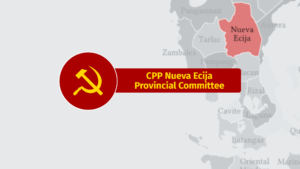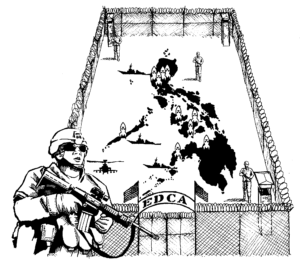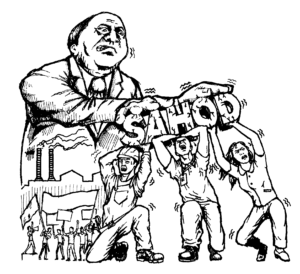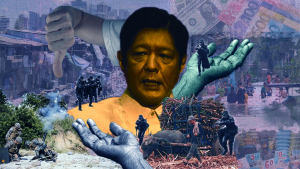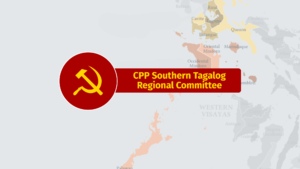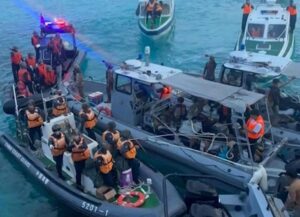Economic-only changes doesn't make "chacha" less evil
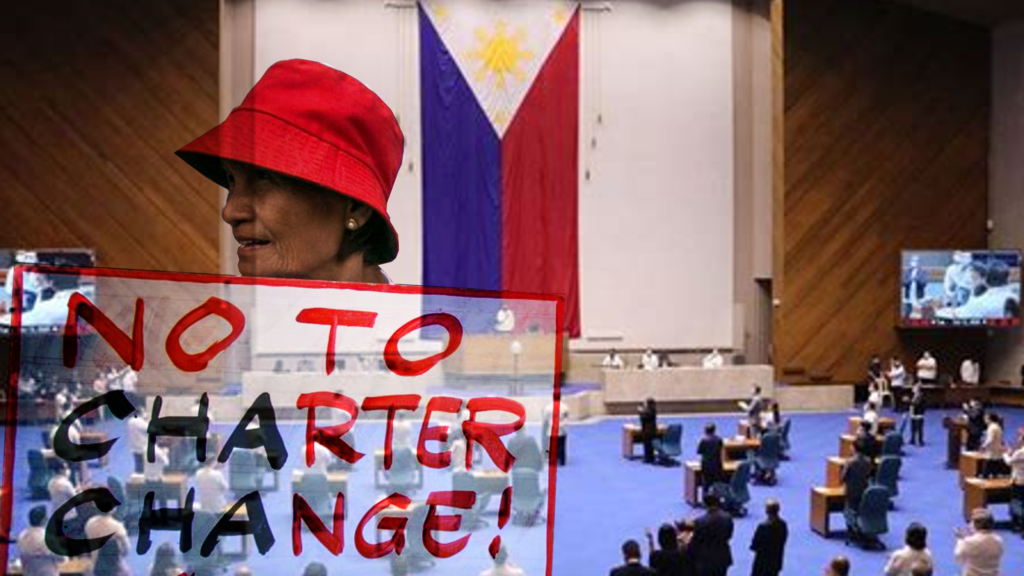
Read in: Pilipino
Assurances made by leaders of the House of Representatives that their push for amending the 1987 constitution will be limited only to economic provisions does not make the plan less evil.
The plan to enshrine economic liberalization in the Philippine constitution, in fact, is more deleterious in the long-term, more than the much assailed political amendments to perpetuate Duterte’s tyranny and extend the terms of politicos, as well as the scheme to kill the party-list system.
The declared aim of giving foreign capitalists the right to fully own land, natural resources and business operations is, in fact, equivalent to complete economic subjugation. House Speaker Velasco and his cohorts are acting as traitors in pushing for the complete colonization of the Philippines by multinational corporations, in connivance with local big bourgeois comprador companies.
Claims that completely liberalizing the economy will lead to economic growth are groundless. The trade and investment liberalization offensive since the 1990s has only debilitated the local economy, widened trade deficits and made the country ever dependent on debt.
For 75 years now, the Philippine economy has been dominated by multinational corporations which have accumulated superprofits by plundering and exploiting the country’s human and natural resources. The big bourgeois comprador ruling class in the Philippines–the Cojuangcos, Ayalas, Zobels, Pangilinans, Sys, Villars and so on–serve as local agents of foreign capital and have controlled the Philippine state.
The succession of bureaucrat capitalist governments, acting as agents of the big bourgeois compradors, have made attracting more foreign investments through liberalization as their cornerstone policy. None of them have managed to enable the local economy to stand on its own two feet. Trade and investment liberalization, as well as providing incentives to foreign capital, have only succeeded in killing local industries and pushing agricultural producers to bankruptcy.
Foreign investments have failed to capacitate the Philippine economy which until now could not produce even the most basic necessities for production and consumption. This fact has been demonstrated ever so clearly during the Covid-19 pandemic which exposed the country’s inability to produce the raw materials for manufacturing personal protective equipment and face masks, much less ventilators or more importantly, testing kits and vaccines. Even the smallest of needles have to be imported.
More foreign capital have only led to the conversion of agricultural land for big multinational agribusiness who produce crops for exports, severely affecting local production of rice, vegetables and food crops, endangering food security, pushing up food prices and making the country dependent of food imports.
Foreign capital have never helped industrialize the Philippines. They invest only in factories that produce commodities that Filipinos do not need or can ill-afford. These form part of the international assembly line of multinational corporations where they seek to exploit the cheapest available wage rates. Jobs being produced are contractual or temporary as multinationals have mastered the ability to shift production from one country to another depending on where it can maximize profits.
So-called economic growth of the past years does not measure the actual health of the local economy nor the Filipino people’s state of economic well-being. It does not take into consideration whether local production corresponds to the needs of the people (food, most especially) or raising the productive capacity of the economy. While the Philippines produces electrical and electronic components for the global vehicle and semiconductor assembly line, there are no local basic and integrated industries that can produce steel and other capital commodities.
Enshrining total liberalization in the 1987 constitution will only further push the country to the race to the bottom among other backward countries who “attract foreign investors” by offering the lowest workers wages and least regulation to plunder local resources. It will lead to worse forms of labor exploitation through wage repression, flexible employment schemes to extend the workday, abuse of workers rights and job insecurity. It will also result in worse plunder and poisoning of environment due to large-scale mining, plantations and operations of economic zones.
It is the patriotic duty of all Filipino to resist the so-called “economic chacha” and defend the country’s patrimony. A broad patriotic united front must be forged to stop the plans for amending the 1987 constitution to favor foreign big capitalists and their local big business partners.
The Filipino people, especially the broad masses of workers and peasants, together with the petty and national bourgeoisie, denounce the “economic chacha” and demand an end to the semicolonial and semifeudal system that perpetuate economic backwardness, oppression and exploitation.

